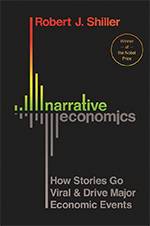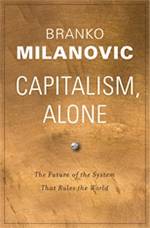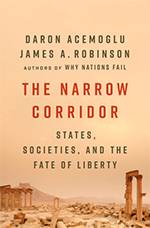OnPoint Subscriber Exclusive

Kemal Derviş
Says More…
This week, Project Syndicate catches up with Kemal Derviş, former Turkish Economy Minister and UNDP Administrator and current Senior Fellow at the Brookings Institution.
Project Syndicate: “Precisely at a time when rules-based multilateralism is in retreat,” you and Sebastián Strauss recently wrote, “perhaps the fear and losses arising from COVID-19 will encourage efforts to bring about a better model of globalization.” But how likely is that? As you acknowledge in your most recent PS commentary, “Solidarity across borders will be the most difficult challenge posed by the pandemic catastrophe.” Could the COVID-19 pandemic thus result in uncontrolled deglobalization? How might such an outcome be avoided, or at least mitigated?
Kemal Derviş: As Strauss and I acknowledge, it could go either way. Fears about global interdependence are set to deepen, as will the instinct to protect one’s own country by reducing dependence on “foreigners.” US President Donald Trump’s insistence on calling COVID-19 a “Chinese virus” reflects this approach. If the leaders of the world’s major powers succumb to such suspicion and blame, the crisis could be deeply divisive.
But there are reasons to hope that the pandemic could lead to greater international cooperation. We are also seeing an unprecedented level of open scientific collaboration, aimed at developing vaccines, diagnostics, and therapeutics. Japan and China – usually rivals – quickly offered each other generous aid. Even US and Chinese leaders pledged mutual support in a phone call on March 26!
Derviş recommends
We ask all our Say More contributors to tell our readers about a few books that have impressed them recently. Here are Derviş's picks:
-

Narrative Economics
by Robert Shiller
A Nobel laureate in economics, Shiller describes how narratives, whether accurate or misleading, have far bigger effect on public opinion and policy than complex models or theories. He draws parallels with infectious disease, and even includes an appendix on epidemiology – which is particularly interesting in the current context.
-

Capitalism Alone: The Future of the System That Rules the World
by Branko Milanović
In this masterful “big picture” view of the world, Milanović distinguishes between the liberal-meritocratic capitalism that has evolved mostly in the West (and its social democratic variant) and the state-led political capitalism that China embodies. He provides careful factual analysis of the two systems, within a grand historical perspective. While his analysis does not focus on the history of economic and political thought, it is grounded in his deep knowledge of the classics, from Plato and Aristotle to Marx and Max Weber. Milanović does not attempt to predict the future, but he does offer possible trajectories and argues that liberal capitalism’s survival depends on its ability to improve social mobility and address income inequality.
-

The Narrow Corridor: States, Societies, and the Fate Of Liberty
by Daron Acemoglu and James A. Robinson
Coming in at more than 500 pages, this fascinating book by the authors of Why Nations Fail: The Origins of Power, Prosperity, and Poverty is ideally suited for these days of confinement. The central argument is that liberty and good governance depend on both a strong state and a strong society. Moreover, the search for the right balance between state power and citizens’ ability to restrain the state is never over. Acemoglu and Robinson drive this point home with carefully assembled historical details about how political communities, from ancient Greek city-states to our modern nation-states, have tried – and, often, failed – to maintain this balance.
From the PS Archive
From 2016
Derviş warns against facile reasoning in explaining complex and consequential developments, such as Brexit and Donald Trump. Read more.
From 2019
In this PS On Point Global Bookmark, Derviş reviews three books examining the anatomy of crony capitalism in the Middle East, Russia, and China. Read more.
Around the web
At the 2018 World Policy Conference, Derviş discusses the effects of – and possible solutions to – the ongoing crisis of multilateralism. Watch the video.
In the Intersections podcast, Derviş and Bruce Katz, the inaugural Centennial Scholar, examine the multidisciplinary, adaptive approach cities take to tackle public policy challenges, and highlight other lessons for modern governance. Listen to their discussion.